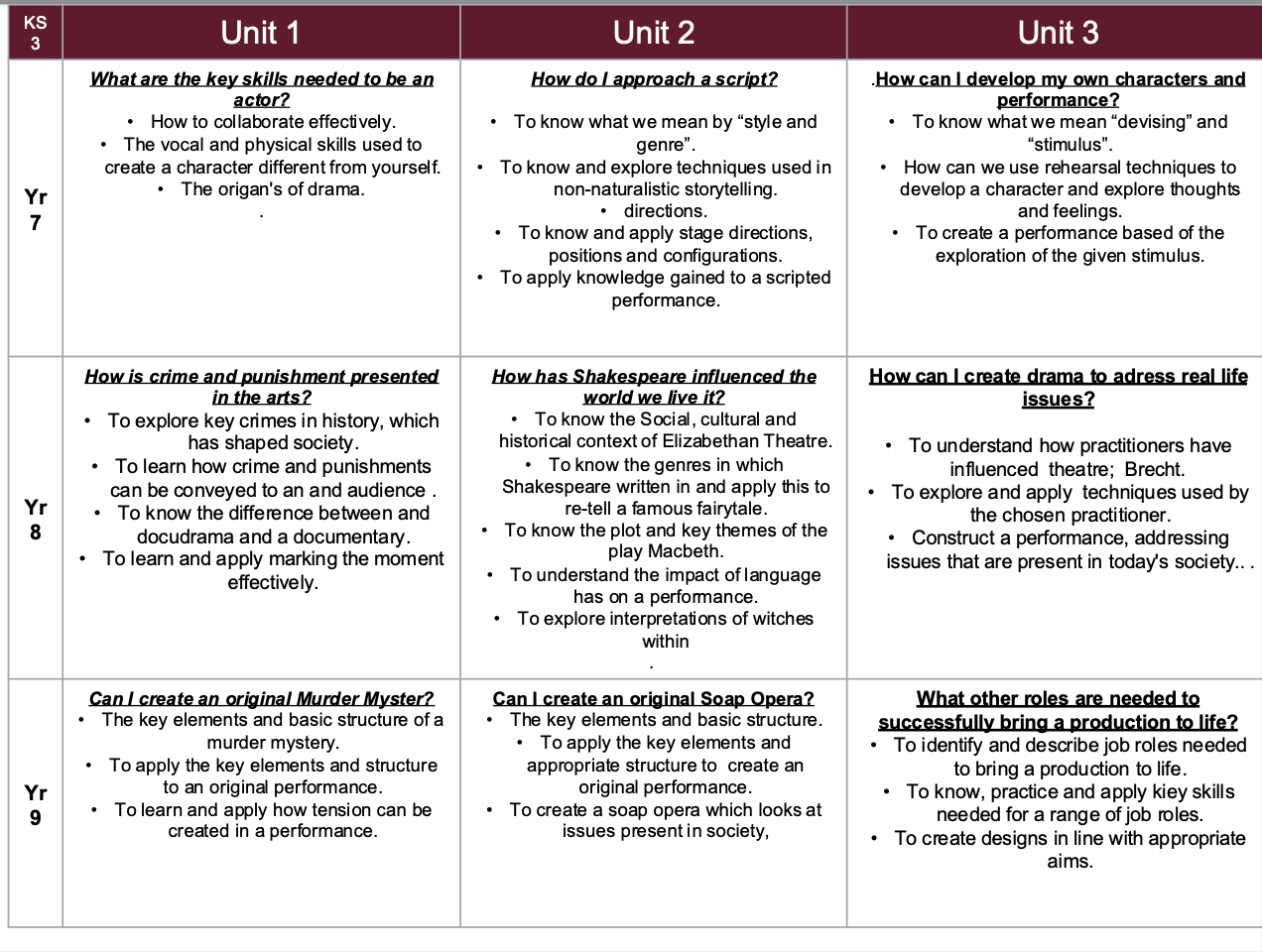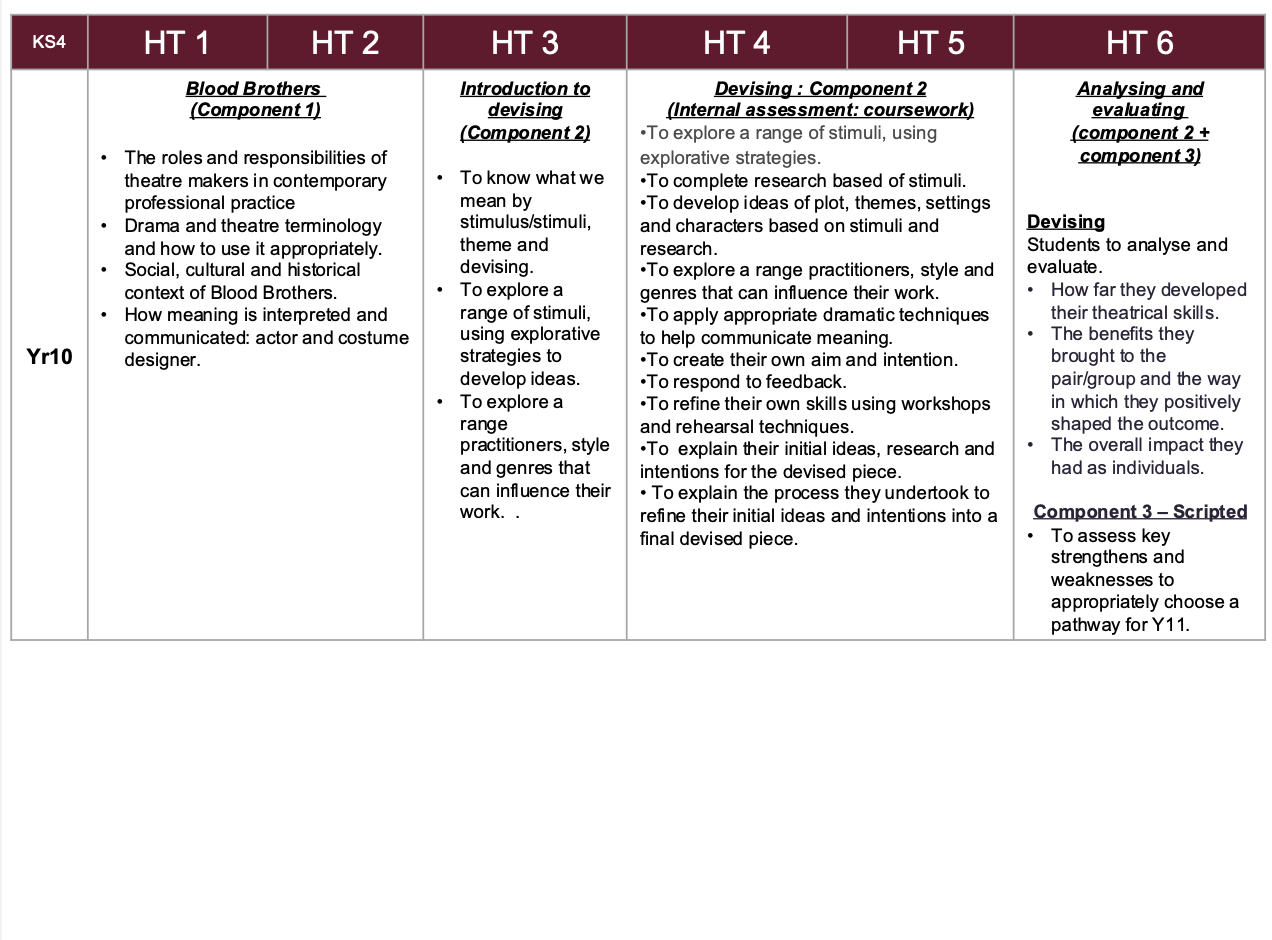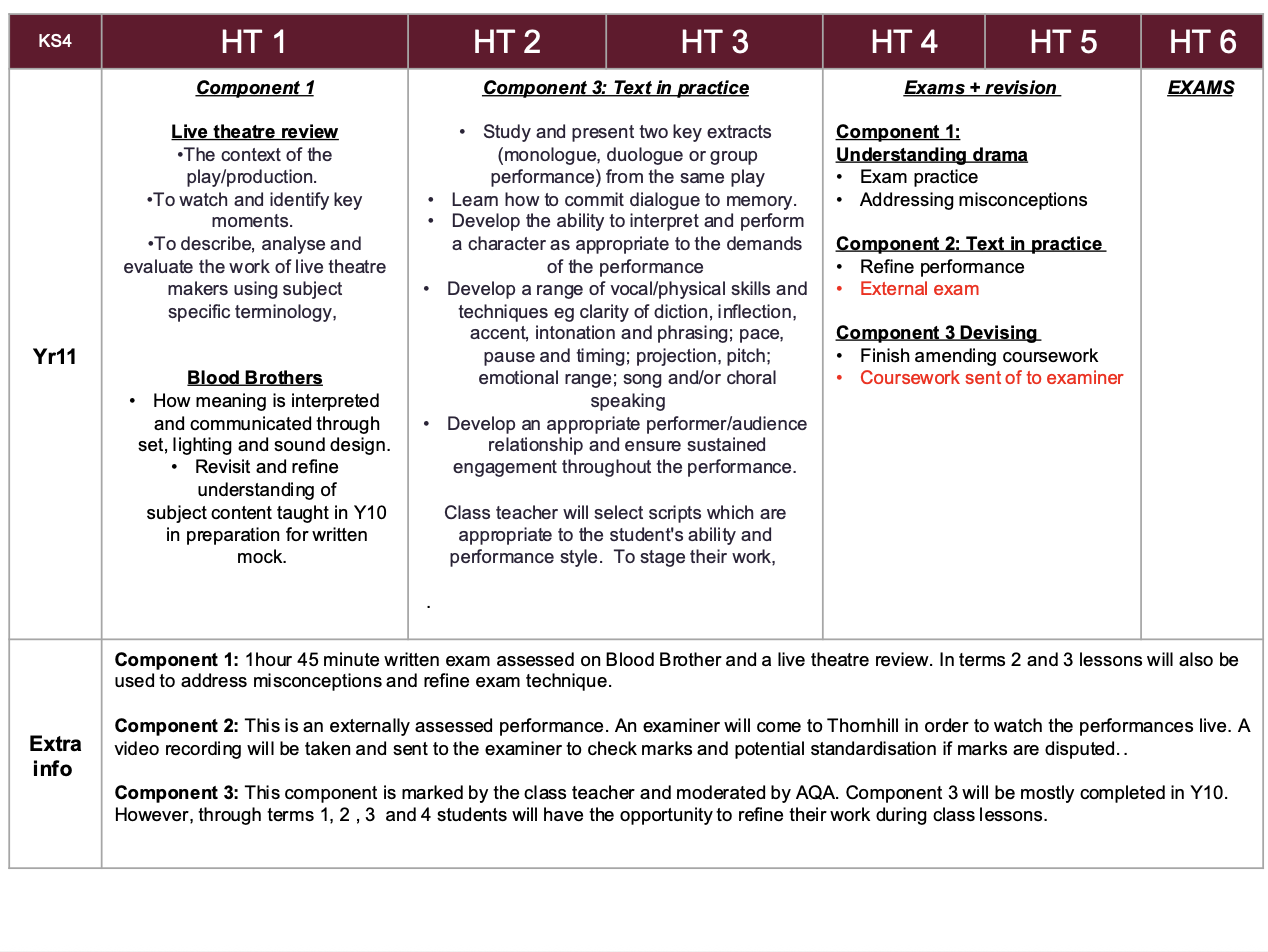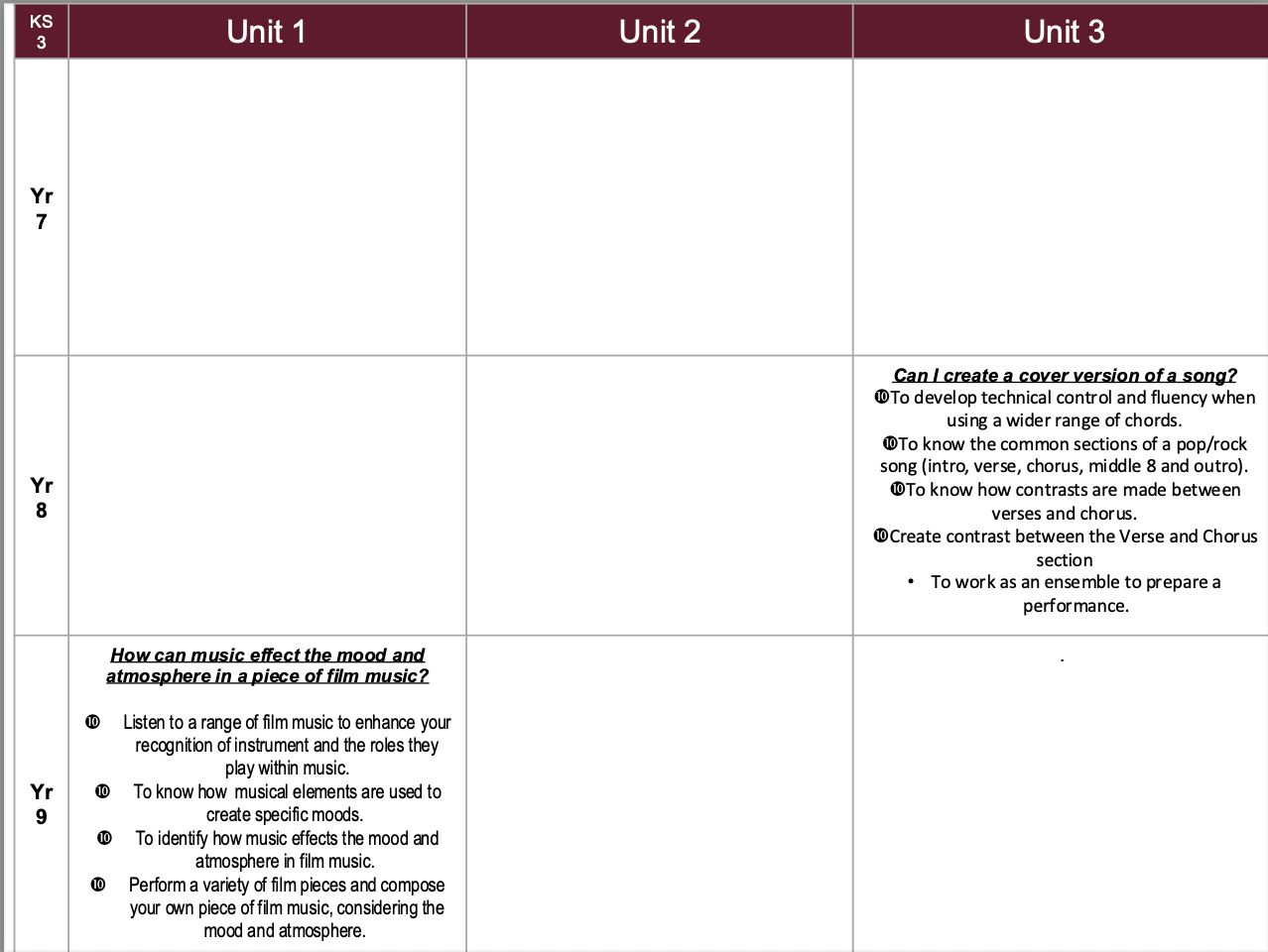Drama
At Thornhill Academy, we view Drama as an essential part of a well-rounded education. It is not only a creative outlet but also a powerful tool for academic and personal development. Through Drama, students explore new ways of learning that are engaging, inclusive, and accessible to all. The subject encourages self-expression, builds confidence, and helps students develop a deeper understanding of themselves and the wider world. Our curriculum is designed to support the growth of the whole child, while also providing opportunities to stretch, challenge, and inspire every learner to reach their full potential.
KS3
The Drama journey at Thornhill Academy begins with a strong focus on developing essential social skills and the ability to collaborate effectively with others. Students are encouraged to make meaningful connections between Drama, other areas of the curriculum, and real-life contexts.
As they progress, students revisit and build upon these key life skills, alongside core academic concepts, through a carefully sequenced and engaging curriculum. This approach ensures both personal growth and academic development.
Topics explored in Drama include:




GCSE Drama at Thornhill Academy
Students who choose to continue their study of Drama at Thornhill Academy follow the AQA GCSE Drama specification, supported throughout by a fully qualified specialist teacher.
As part of the course, students will explore Blood Brothers by Willy Russell through practical workshops, focusing on how the play can be effectively staged and how performance and design elements work together. This exploration prepares them for the written examination, which also includes the analysis and evaluation of a live theatre performance. This component accounts for 40% of the final GCSE grade.
For the practical examination, students will perform two extracts from a play selected by their teacher to suit the class’s interests and abilities, while also providing appropriate challenge. These performances are assessed by an external examiner in Year 11 and make up 20% of the final grade.
Finally, students will devise their own original performance using a range of stimuli. This component encourages creativity and independence, as students take full responsibility for shaping and developing their final piece. Teachers provide structured workshops to support this process. Alongside the performance, students complete a written log detailing how their ideas were generated, developed, and refined, as well as an evaluation of their final work. This unit is worth 40% of the GCSE.



